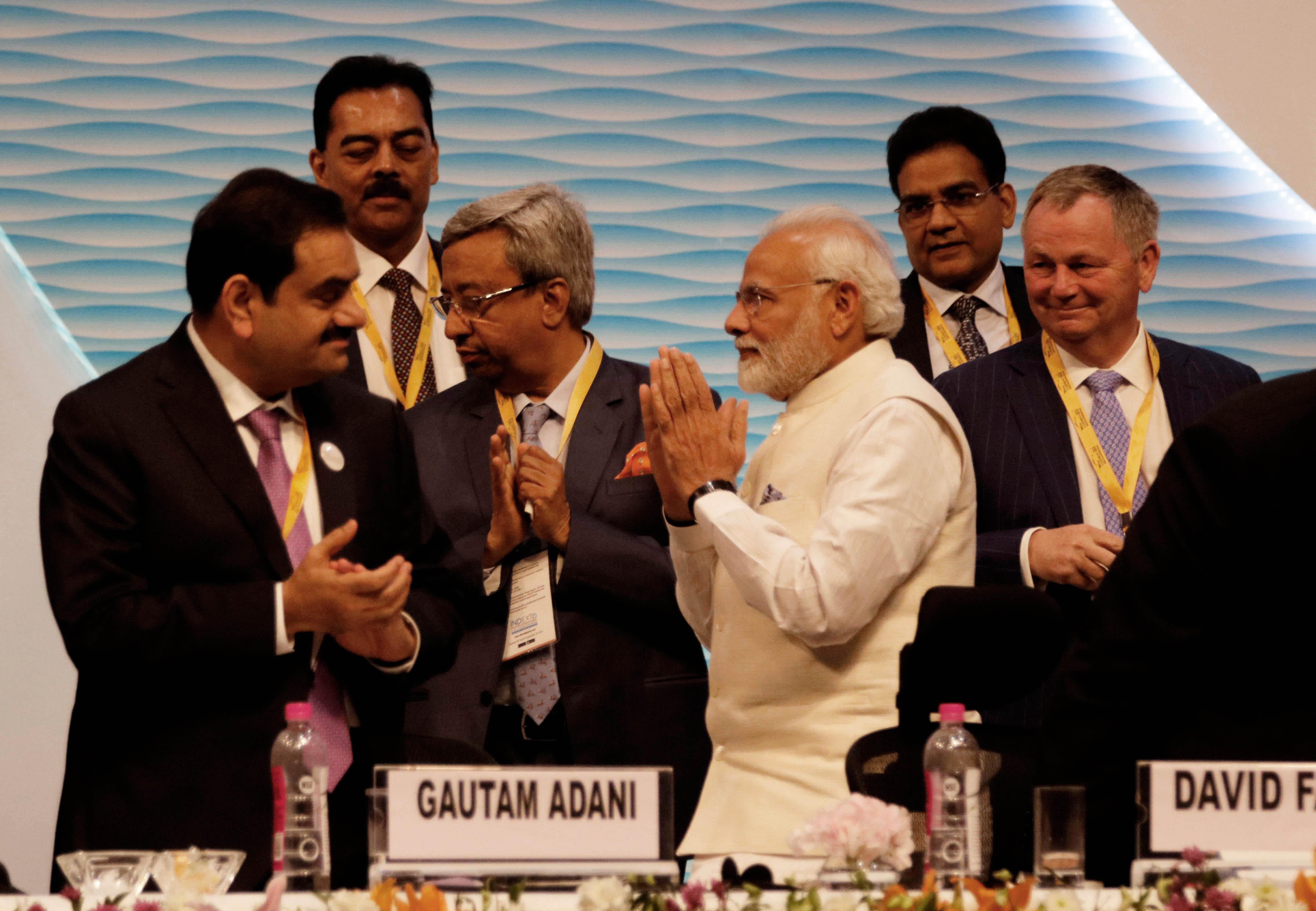
India slammed billionaire investor George Soros after he alleged the Adani turmoil will weaken Prime Minister Narendra Modi’s grip on power and lead to a “democratic revival” in the country.
The latest dispute highlights renewed scrutiny on the relationship between India’s leader and business tycoon Gautam Adani, who has lost billions in net worth since a short seller report accused his companies of fraud. The Adani Group has denied those allegations, calling the report a “calculated attack on India.”
Last week, Soros criticized the prime minister saying India was a democracy but Modi “is no democrat.” Over the weekend, India’s foreign minister, Subrahmanyam Jaishankar, told a conference in Sydney that Soros’ comments were typical of a “Euro-Atlantic view” and rejected his accusations.
“There are still people in the world who believe that their definition, their preferences, their views must override everything else,” Jaishankar said.
He added there was “a debate and conversation that we must have on democracy,” including whose values defined a democracy as the world rebalanced and became less Euro-Atlantic.
“He is old, rich, opinionated and dangerous, because what happens is, when such people and such views and such organizations — they actually invest resources in shaping narratives” Jaishankar said in a response to a question about the billionaire’s remarks.
India’s voters will decide “how the country should [be] run,” the foreign minister said.
“It worries us. We are a country that went through colonialism. We know the dangers of what happens when there’s outside interference,” Jaishankar added.
Modi-Adani ‘close allies’
Soros’ criticism focused on the cozy relationship between Modi and Adani.
“Modi and business tycoon Adani are close allies; their fate is intertwined. Adani Enterprises tried to raise funds in the stock market, but he failed,” said Soros.
Both men hail from India’s Western state of Gujarat. Adani was an early supporter of Modi’s political aspirations and championed the Indian leader’s growth vision for the country. Modi flew in an Adani jet after he was elected to national office in 2014.
But Adani lost his crown as Asia’s wealthiest man in a matter of days after short-seller firm Hindenburg Research alleged fraud. The Adani Group has denied wrongdoing and fired back at the firm in an over 400-page rebuttal.
“Adani is accused of stock manipulation and his stock collapsed like a house of cards. Modi is silent on the subject, but he will have to answer questions from foreign investors and in parliament,” Soros said.
The billionaire predicted Adani’s troubles will “significantly weaken Modi’s stranglehold on India’s federal government” and “open the door to push for much needed institutional reforms.”
“I may be naive, but I expect a democratic revival in India,” Soros said.
The Hungarian-born investor is the founder of the Open Society Foundations advocacy network, through which he has donated more than $32 billion, according to its website. The network said it gives “thousands of grants every year toward building inclusive and vibrant democracies,” with active projects in more than 120 countries.
Adani’s fall draws fire
Opposition critics have also seized on the Hindenburg report to attack Modi and his party ahead of national elections set for next year. India’s main opposition Congress party has staged protests and demanded an investigation into Hindenburg’s allegations.
However, the opposition party was quick to distance itself from Soros’ comments.
“Whether the PM-linked Adani scam sparks a democratic revival in India depends entirely on the Congress, opposition parties and our electoral process,” tweeted Jairam Ramesh, Congress’ general secretary. “It has NOTHING to do with George Soros.”
Politically, it’s hard to predict what effect, if any, the Adani scrutiny will have on Modi’s popularity and his ruling Bharatiya Janata Party, observers said.
Still, the relationship between Modi and Adani is “so long and strong” it will be tough for the prime minister and his party to wriggle out of this crisis unscathed, Ashok Swain, head of the department of peace and conflict research at Uppsala University in Sweden told CNBC recently.
Source: CNBC
